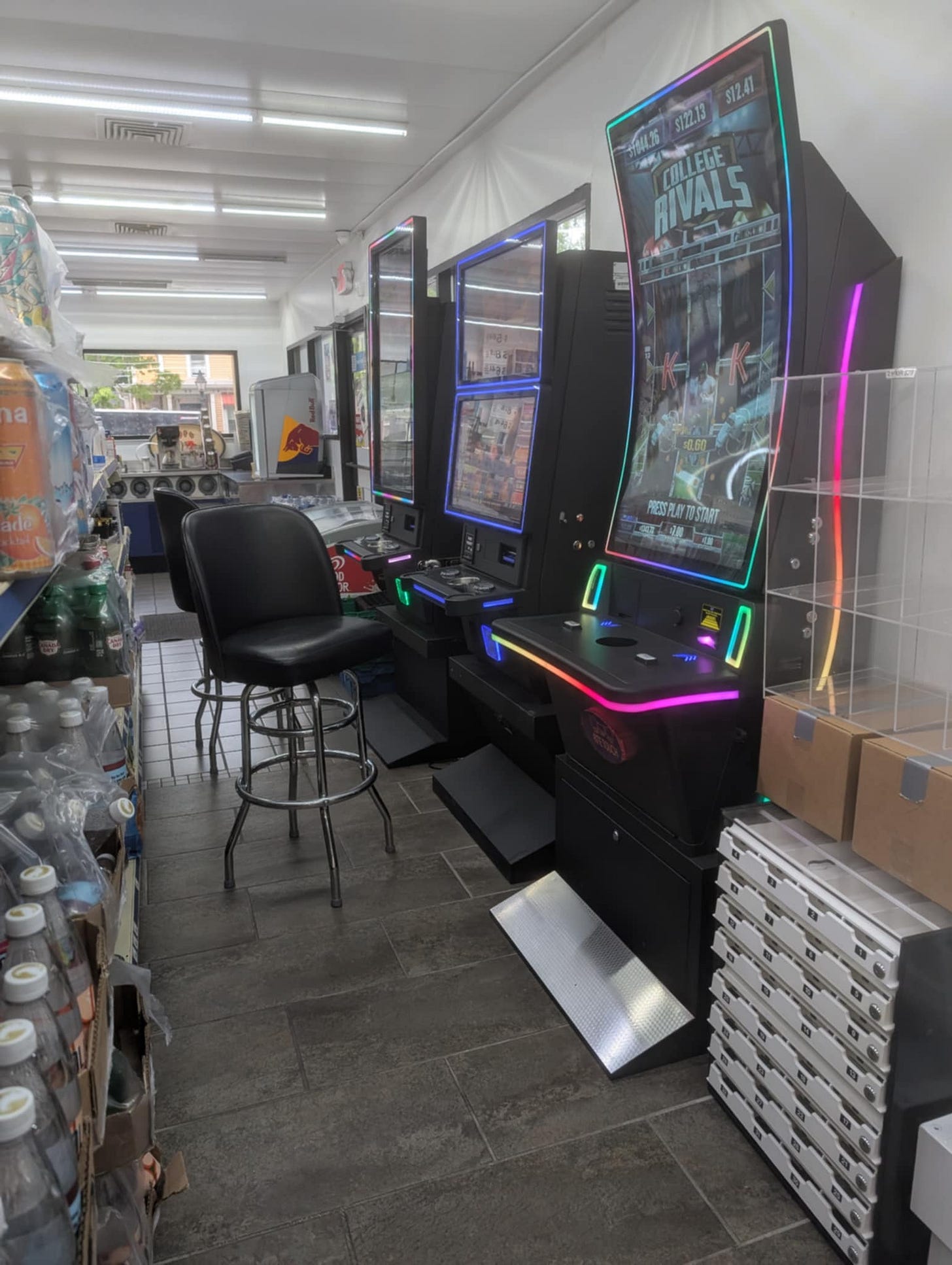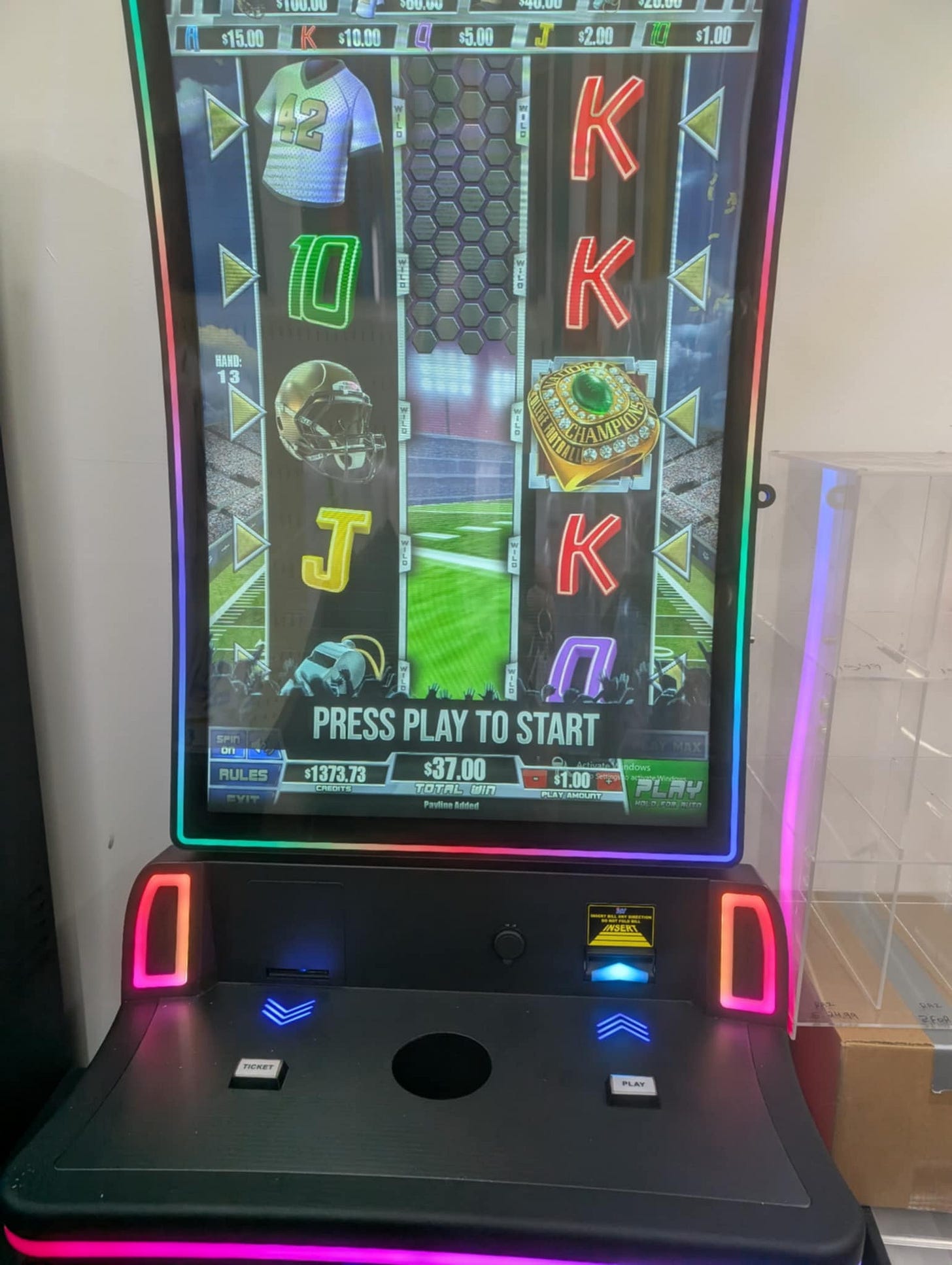Gambling by Another Name, Skill Games Sweep into Pike County
Legal restrictions of the machines are few, but Milford Borough Council has restricted their numbers.
By Dakota Hendricks
A new type of machine, resembling a casino-style slot machine, has appeared in gas stations, convenience stores, liquor stores, delis, smoke shops, the American Legion, and other local businesses.
Although they look and function much like gambling machines, the Pennsylvania Commonwealth Court has ruled that these "skill games" do not meet the legal definition of gambling because of a “skill-based component” and are not subject to the PA Gaming Commission. Operated by Pace-O-Matic, the machines presented to the court print out tickets that can be redeemed at the store counter for cash, up to a preset limit determined by each machine. The games involve paying between $0.25 to $5 to wager on a slot or activity during play or regain lost points through a puzzle of some kind.
According to Pace-O-Matic’s website, PA Skill, the games offer significant benefits to local businesses. The company promotes its machines with numerous instructional videos, business testimonials highlighting increased revenue, and legal victories supporting its position that the games are not technically gambling. They claim to have prizes up to 105% of the wagered points, though some machines found in the wild have progressive jackpots and other effects.
“Unlike traditional slot machines, video poker games, lottery products, or VGTs, Pace-O-Matic’s Pennsylvania Skill games afford each player the opportunity to win more than the wager on each and every play,” the company claims.
Visually, the machines resemble a hybrid between arcade games and slot machines, featuring bright decals, large display or touch screens, flashing animations, and sound effects with each action. In exploring the various businesses with these skill games available, only two were Pac-O-Matic machines; the rest varied widely in how closely they resembled a traditional gambling machine.
At Tri State Tobacco-Beer & Wine in Matamoras, an employee reported seeing individual payouts exceed $6,000, with rumors of significantly higher winnings. The back of the store houses about ten machines and a small lounge area where patrons can play. Prominent signs warn that tickets must be redeemed the same day they are issued or the tickets will not be honored.
Although these machines remain untaxed and unregulated, the state has considered implementing oversight through regulations, taxes, and fees. Locally, Milford Borough is working on an ordinance to limit the machines’ use and placement. According to Borough Council Chairman Joe Dooley, the goal is to control both the number and location of the machines.
Matamoras Borough rejected an applicant from opening a business solely with these machines, called the Amusement Arcade. In the decision, the Borough outlines several reasons why the applicant was rejected, including age discrimination against anyone under 21 and how the description provided by the applicant describes a progressive jackpot that builds over time, which is not described at all in the Commonwealth's decision outlining what a skill game is. The progressive jackpot component violates the stated 105% maximum winnings from a skill-based wager. According to the decision, “there is a significant chance-based element that more closely resembles gambling than those machines outlined by the Commonwealth Court.”
Without regulation, many businesses have begun installing as many machines as space allows. At the Shell station on the edge of Milford Borough, two large machines occupy an area no bigger than a small shed. Borough Council Chairman Joe Dooley noted that the SNK Fuels near the Milford Post Office was required to remove several machines; three remain in the small gas station. In Dingmans Ferry, Lakeview Deli has five machines lining the back wall of an already cramped store. The widespread presence of these skill games suggests they are highly profitable for local businesses, though none of the owners contacted for this story agreed to comment. According to several patrons using the machines, local businesses are requiring players to be 21 and older, a restriction that traditional gambling machines require. One individual even described the game as “no different from a slot machine.”
These machines are unregulated, and the exact definition is seemingly unclear. Unlike a casino, how the machines operate is not strictly defined or controlled; there is no regulatory body to call on for disputes, and no laws protect the players from bad actors or the businesses from patrons. Casinos have security, regularly monitor and handle disputes, have to answer to the Gaming Commission, and abide by strict laws. These pseudo gambling machines are now in the local Turkey Hill. What happens when a patron loses their life savings on a bet?
Community focused news can only succeed with community support. Please consider the various subscription levels.


